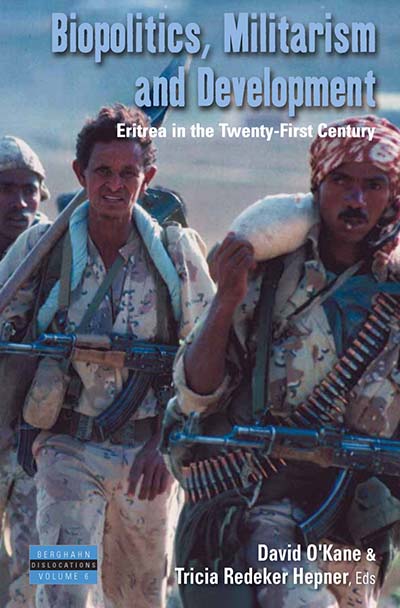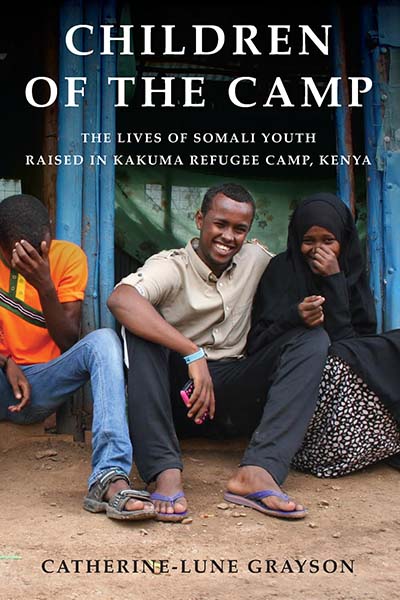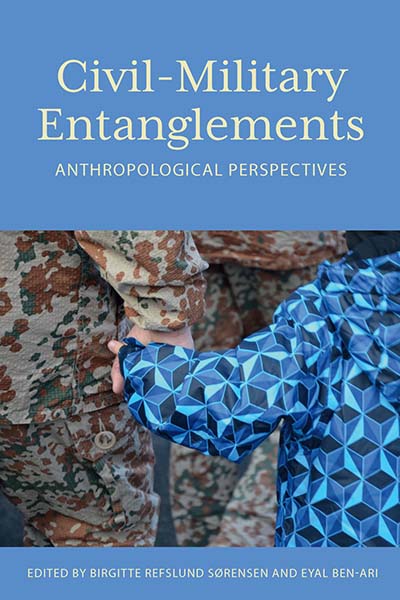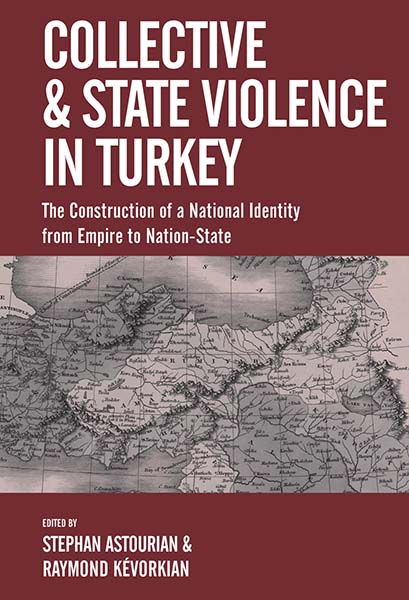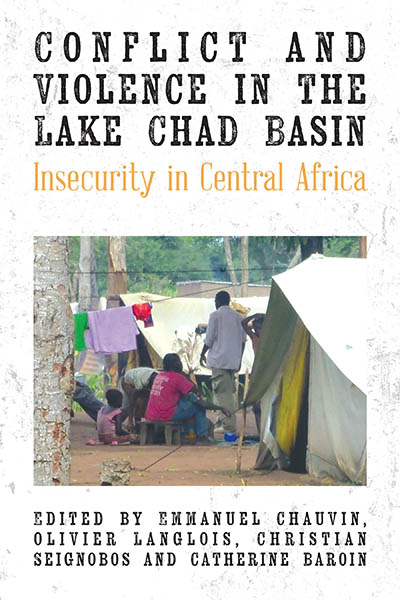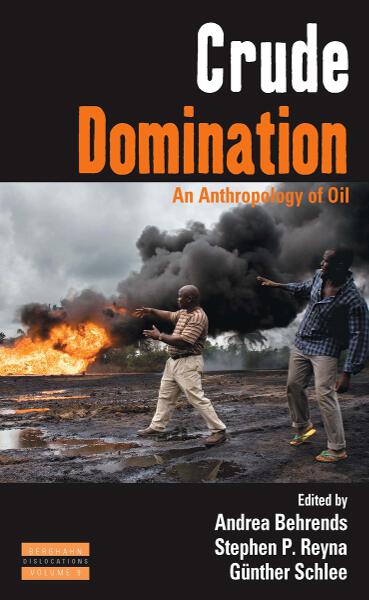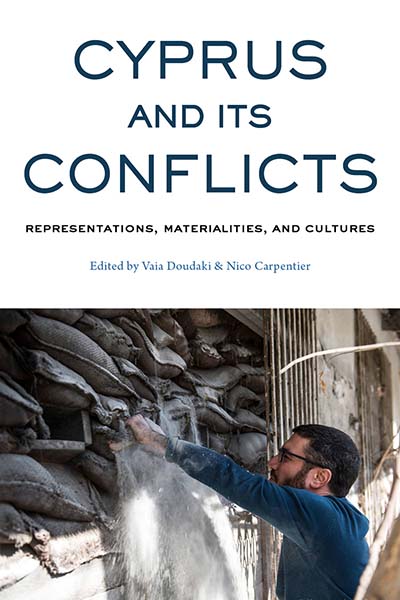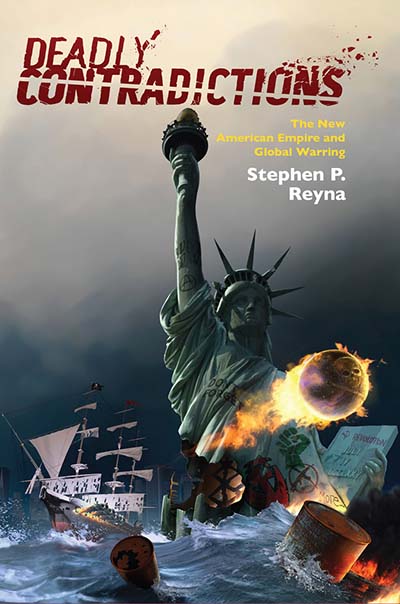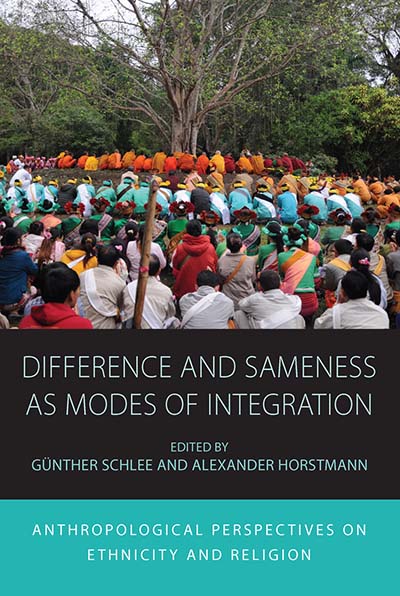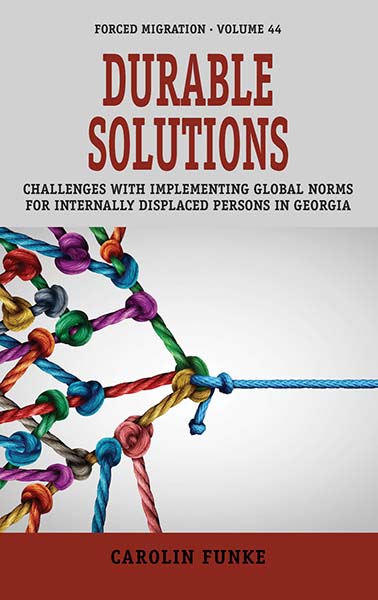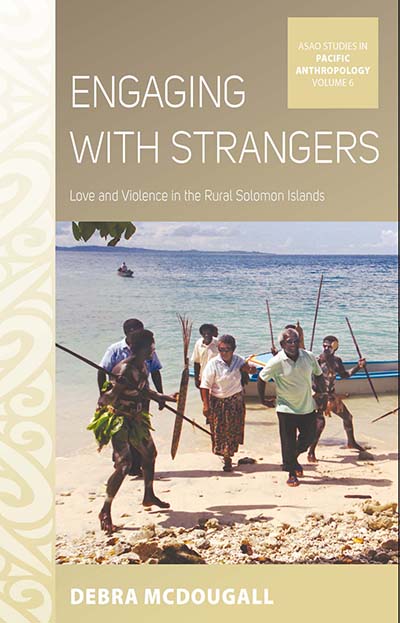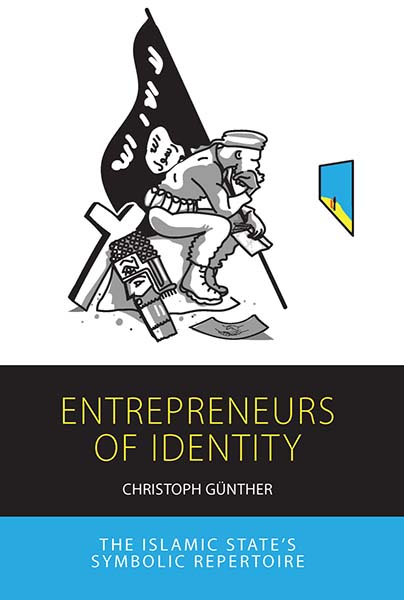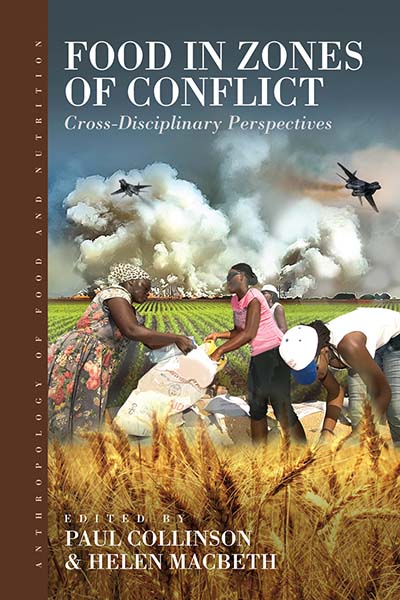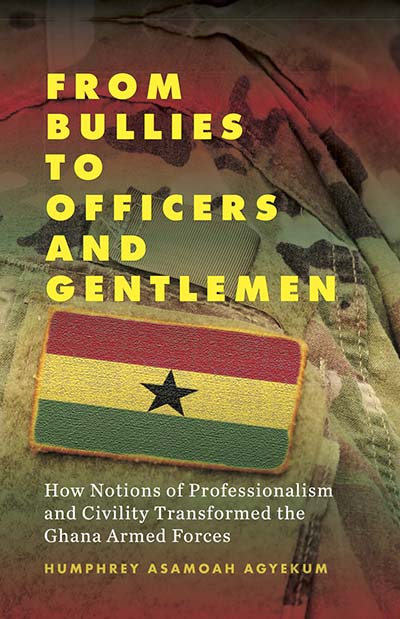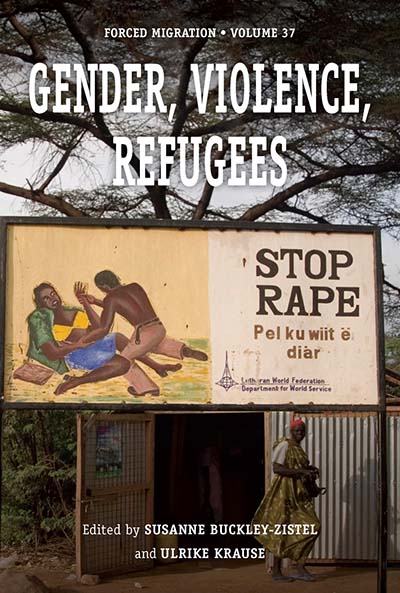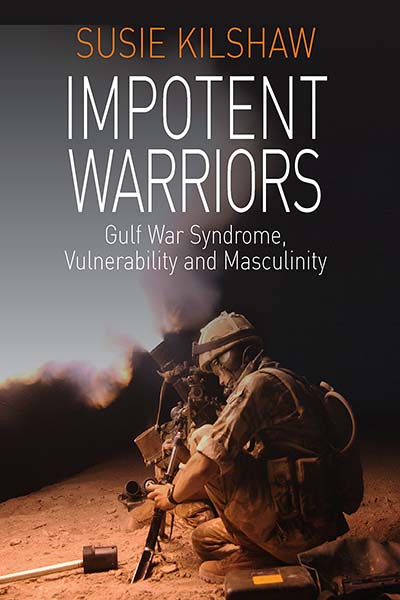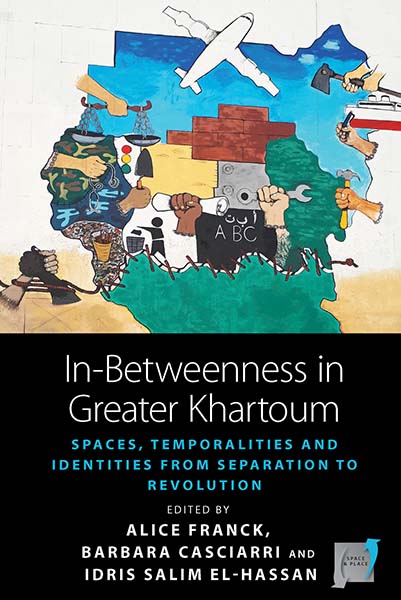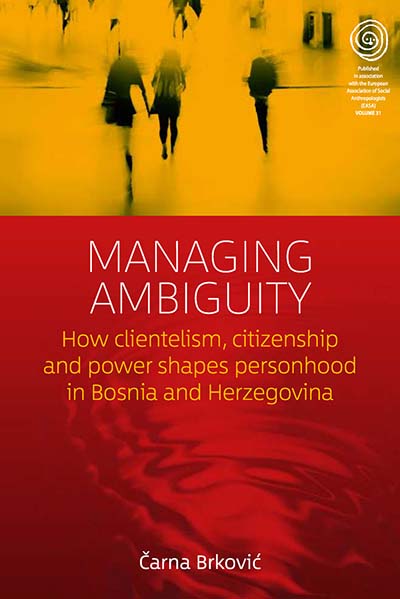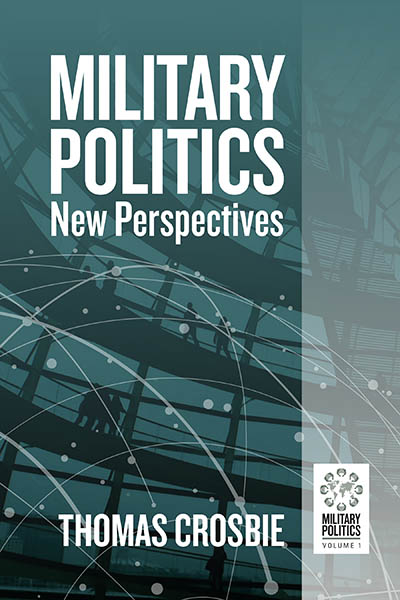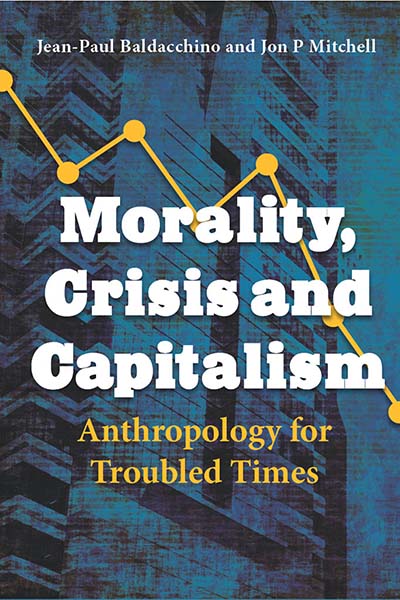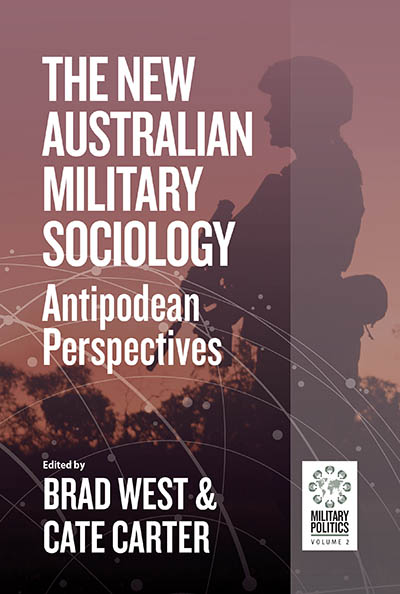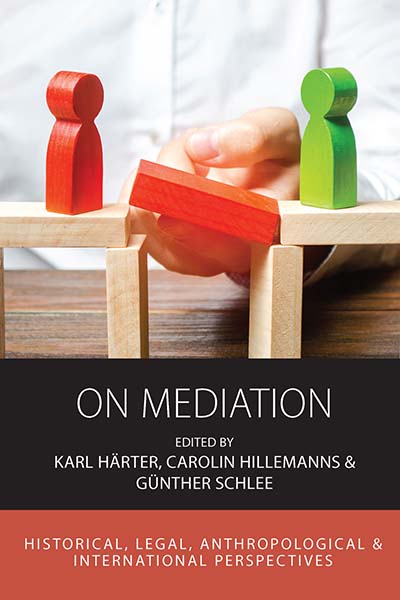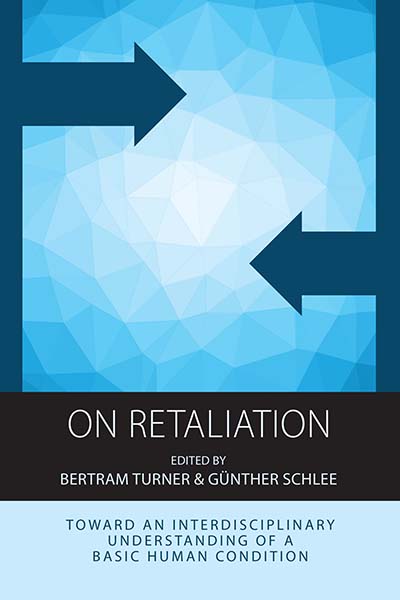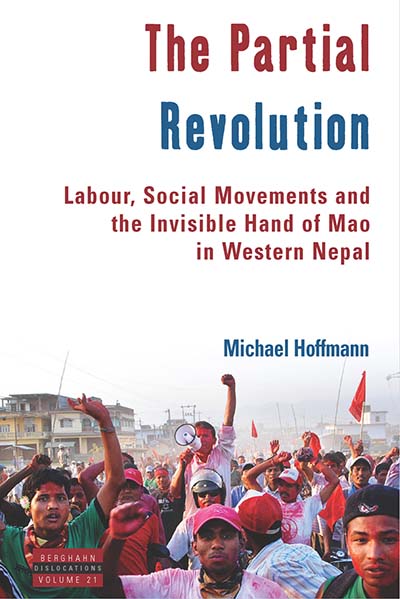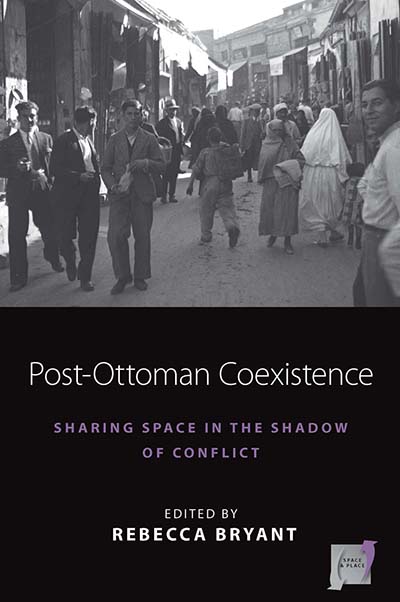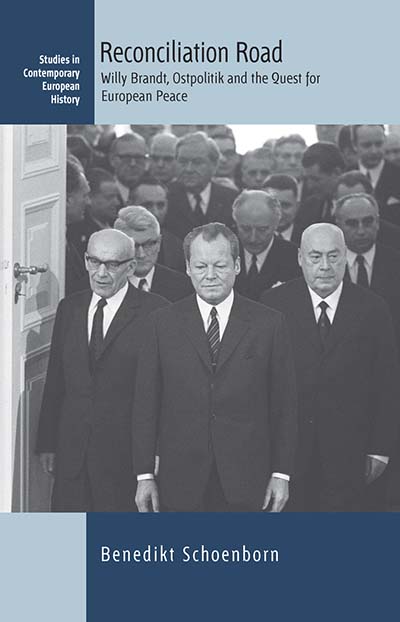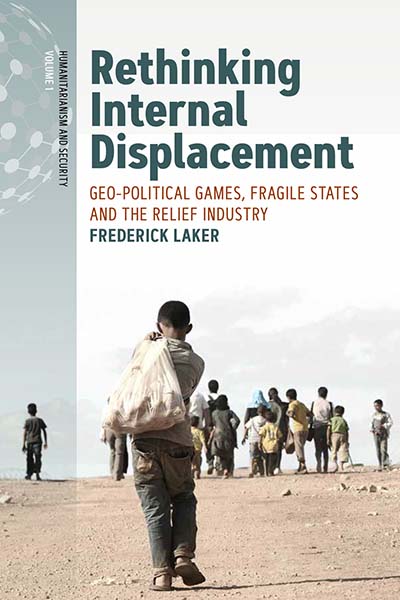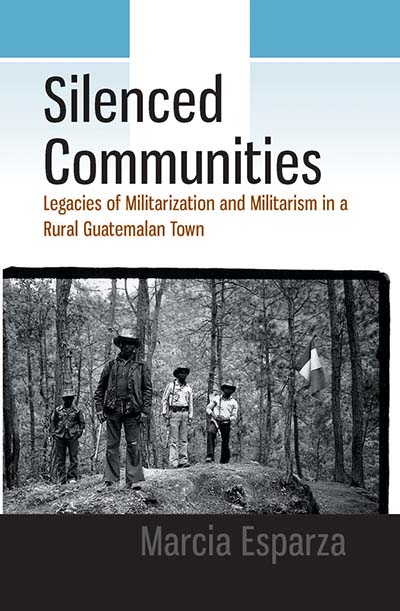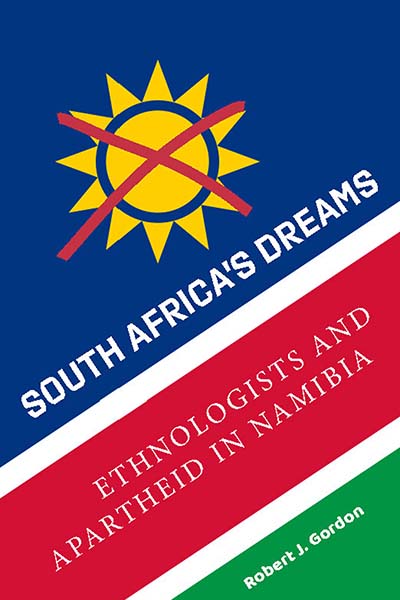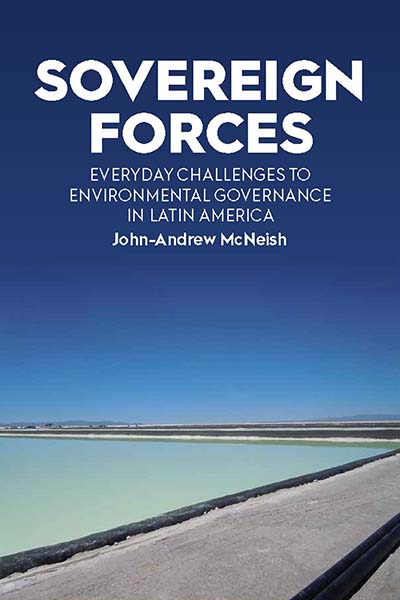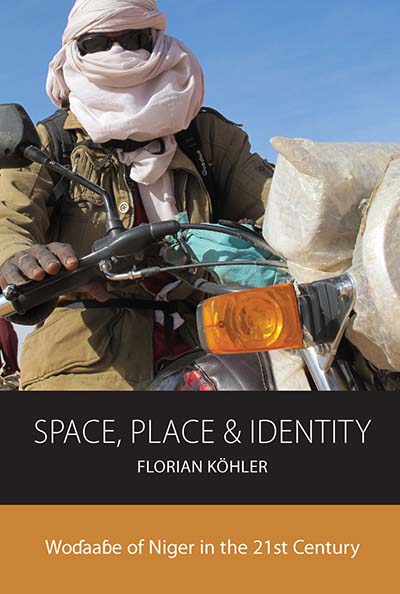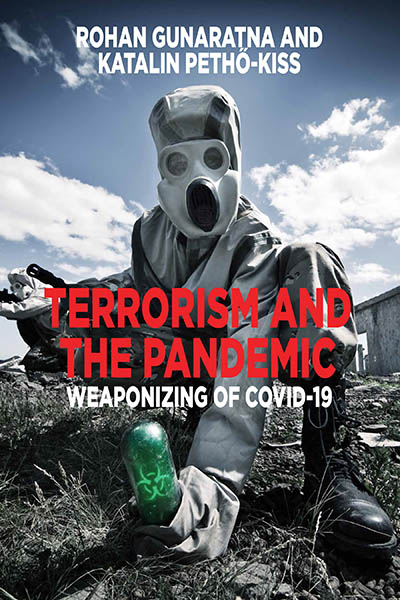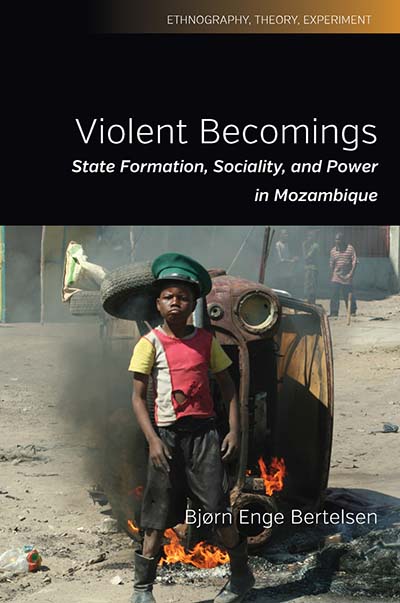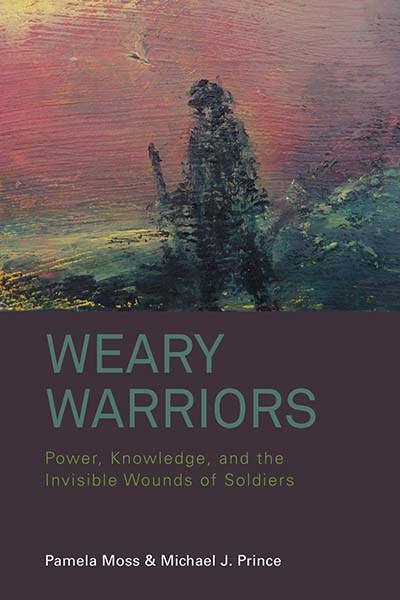Home -> Browse
-

Biopolitics, Militarism, and Development
Eritrea in the Twenty-First Century
O'Kane, D. & Hepner, T. R. (eds)
Bringing together original, contemporary ethnographic research on the Northeast African state of Eritrea, this book shows how biopolitics - the state-led deployment of disciplinary technologies on individuals and population groups - is assuming particular forms in the twenty-first century. Once hailed as the “African country that works,” Eritrea’s apparently successful post-independence development has since lapsed into economic crisis and severe human rights violations. This is due not only to the border war with Ethiopia that began in 1998, but is also the result of discernible tendencies in the “high modernist” style of social mobilization for development first adopted by the Eritrean government during the liberation struggle (1961–1991) and later carried into the post-independence era. The contributions to this volume reveal and interpret the links between development and developmentalist ideologies, intensifying militarism, and the controlling and disciplining of human lives and bodies by state institutions, policies, and discourses. Also assessed are the multiple consequences of these policies for the Eritrean people and the ways in which such policies are resisted or subverted. This insightful, comparative volume places the Eritrean case in a broader global and transnational context.
Subjects: Peace and Conflict Studies Development Studies Anthropology (General)
Area: Africa
-

Cambodian Journeys
Stories of Refugees Surviving the Khmer Rouge
Mamula, S. & Sutton, E.
Between 1975 and 1979, the Khmer Rouge genocide claimed an estimated 1.7 million lives. Survivors faced starvation, torture, and dangerous journeys through mountainous and mine-filled jungles. Upon arriving at refugee camps, they faced uncertainty and hardship before eventually moving to the USA where they struggled to adapt to urban life. This book tells the survival stories of seven Cambodians who endured the Khmer Rouge Genocide, their escape to Thailand, and their difficult resettlement in the United States. It is a collection of first-person oral histories, supplemented by images of documents and photographs, highlighting journeys of resilience, survival, and adaptation amidst profound trauma.
Subjects: Refugee and Migration Studies Political and Economic Anthropology Peace and Conflict Studies
Area: Asia
-

Children of the Camp
The Lives of Somali Youth Raised in Kakuma Refugee Camp, Kenya
Grayson, C.-L.
Chronic violence has characterized Somalia for over two decades, forcing nearly two million people to flee. A significant number have settled in camps in neighboring countries, where children were born and raised. Based on in-depth fieldwork, this book explores the experience of Somalis who grew up in Kakuma refugee camp, in Kenya, and are now young adults. This original study carefully considers how young people perceive their living environment and how growing up in exile structures their view of the past and their country of origin, and the future and its possibilities.
Subjects: Refugee and Migration Studies Anthropology (General) Peace and Conflict Studies Sociology
Area: Africa
-

Civil–Military Entanglements
Anthropological Perspectives
Sørensen, B. R. & Ben-Ari, E. (eds)
Military-civilian encounters are multiple and diverse in our times. Contributors to this volume demonstrate how military and civilian domains are constituted through entanglements undermining the classic civil-military binary and manifest themselves in unexpected places and manners. Moreover, the essays trace out the ripples, reverberations and resonations of civil-military entanglements in areas not usually associated with such ties, but which are nevertheless real and significant for an understanding of the roles war, violence and the military play in shaping contemporary societies and the everyday life of its citizens.
Subjects: Peace and Conflict Studies Applied Anthropology
-

Collective and State Violence in Turkey
The Construction of a National Identity from Empire to Nation-State
Astourian, S. & Kévorkian, R. (eds)
Turkey has gone through significant transformations over the last century—from the Ottoman Empire and Young Turk era to the Republic of today—but throughout it has demonstrated troubling continuities in its encouragement and deployment of mass violence. In particular, the construction of a Muslim-Turkish identity has been achieved in part by designating “internal enemies” at whom public hatred can be directed. This volume provides a wide range of case studies and historiographical reflections on the alarming recurrence of such violence in Turkish history, as atrocities against varied ethnic-religious groups from the nineteenth century to today have propelled the nation’s very sense of itself.
Subjects: History (General) Genocide History Peace and Conflict Studies
Area: Middle East & Israel
-

Conflict and Violence in the Lake Chad Basin
Insecurity in Central Africa
Chavin, E., Langlois, O., Seignobos, C., & Baroin, C. (eds)
Ranging from Boko Haram to the war in the Central African Republic, insecurity forms a major factor among societies in the Lake Chad Basin (Cameroon, Central African Republic, Niger, Nigeria, Chad). Marred by conflict and violence, these territories are difficult to access and not well-known, so they tend to be out of reach for scholarly study and development programs. The long-term and in-depth field studies that this volume presents offer a window on conflict analysis based on insights into local dynamics and the lived world of the people themselves.
Subjects: Political and Economic Anthropology Peace and Conflict Studies Sociology
Area: Africa
-

Crude Domination
An Anthropology of Oil
Behrends, A., Reyna, S. P. & Schlee, G. (eds)
Crude Domination is an innovative and important book about a critical topic – oil. While there have been numerous works about petroleum from ‘experience-far’ perspectives, there have been relatively few that have turned the ‘experience-near’ ethnographic gaze of anthropology on the topic. Crude Domination does just this among more peoples and more places than any other volume. Its chapters investigate nuances of culture, politics and economics in Africa, Latin America, and Eurasia as they pertain to petroleum. They wrestle with the key questions vexing scholars and practitioners alike: problems of the economic blight of the resource curse, underdevelopment, democracy, violence and war. Additionally they address topics that may initially appear insignificant – such as child witches and lionmen, fighting for oil when there is no oil, reindeer nomadism, community TV – but which turn out on closer scrutiny to be vital for explaining conflict and transformation in petro-states. Based upon these rich, new worlds of information, the text formulates a novel, domination approach to the social analysis of oil.
Subjects: Peace and Conflict Studies Anthropology (General)
Areas: Africa Latin America and the Caribbean Central/Eastern Europe
-

Cyprus and its Conflicts
Representations, Materialities, and Cultures
Doudaki, V. & Carpentier, N. (eds)
The Mediterranean island of Cyprus is the site of enduring political, military, and economic conflict. This interdisciplinary collection takes Cyprus as a geographical, cultural and political point of reference for understanding how conflict is mediated, represented, reconstructed, experienced, and transformed. Through methodologically diverse case studies of a wide range of topics—including public art, urban spaces, and print, broadcast and digital media—it assembles an impressively multifaceted perspective, one that provides broad insights into the complex interplay of culture, conflict, and identity.
Subjects: Media Studies Peace and Conflict Studies
Area: Southern Europe
-

Deadly Contradictions
The New American Empire and Global Warring
Reyna, S. P.
As US imperialism continues to dictate foreign policy, Deadly Contradictions is a compelling account of the American empire. Stephen P. Reyna argues that contemporary forms of violence exercised by American elites in the colonies, client state, and regions of interest have deferred imperial problems, but not without raising their own set of deadly contradictions. This book can be read many ways: as a polemic against geopolitics, as a classic social anthropological text, or as a seminal analysis of twenty-four US global wars during the Cold War and post-Cold War eras.
Subjects: Peace and Conflict Studies Anthropology (General)
-

Difference and Sameness as Modes of Integration
Anthropological Perspectives on Ethnicity and Religion
Schlee, G. & Horstmann, A. (eds)
What does it mean to “fit in?” In this volume of essays, editors Günther Schlee and Alexander Horstmann demystify the discourse on identity, challenging common assumptions about the role of sameness and difference as the basis for inclusion and exclusion. Armed with intimate knowledge of local systems, social relationships, and the negotiation of people’s positions in the everyday politics, these essays tease out the ways in which ethnicity, religion and nationalism are used for social integration.
Subjects: Anthropology (General) Anthropology of Religion Peace and Conflict Studies
-

Durable Solutions
Challenges with Implementing Global Norms for Internally Displaced Persons in Georgia
Funke, C.
Focusing on Georgia, this book presents a theoretical and empirical study on the implementation of durable solutions for internally displaced persons (IDPs). Building on extensive field research, it describes and explains the considerable problems which Georgia faces in establishing global norms, as well as the ongoing hardship that IDPs experience. Importantly, the book reveals the simultaneous progress and setbacks in implementing durable solutions. Successfully combining approaches from humanistic studies, international relations, and organizational sociology, this book explains the interaction of norms and actors at and among three societal levels: the international, national, and local.
Subjects: Refugee and Migration Studies Anthropology (General) Peace and Conflict Studies
Area: Central/Eastern Europe
-

Engaging with Strangers
Love and Violence in the Rural Solomon Islands
McDougall, D.
The civil conflict in Solomon Islands (1998-2003) is often blamed on the failure of the nation-state to encompass culturally diverse and politically fragmented communities. Writing of Ranongga Island, the author tracks engagements with strangers across many realms of life—pre-colonial warfare, Christian conversion, logging and conservation, even post-conflict state building. She describes startling reversals in which strangers become attached to local places, even as kinspeople are estranged from one another and from their homes. Against stereotypes of rural insularity, she argues that a distinctive cosmopolitan openness to others is evident in the rural Solomons in times of war and peace.
Subjects: Anthropology (General) Peace and Conflict Studies
Area: Asia-Pacific
-

Entrepreneurs of Identity
The Islamic State’s Symbolic Repertoire
Günther, C.
Describing the Islamic State’s ideologues as ‘entrepreneurs of identity’, this book explores how the group defined categories of social identity and used them as tools of communicative and cognitive structuring. Based on a wide dossier of original texts, speeches, images, and videos, the book examines how these ideologues have built a symbolic repertoire around the black flag as well as ideas and social practices such as the dictum to command good and forbid wrong, the supervision of public behaviour, and the oath of allegiance to the Caliph.
Subjects: Anthropology of Religion Political and Economic Anthropology Peace and Conflict Studies
Area: Middle East & Israel
-

Food in Zones of Conflict
Cross-Disciplinary Perspectives
Collinson, P. and Macbeth, H. (eds)
The availability of food is an especially significant issue in zones of conflict because conflict nearly always impinges on the production and the distribution of food, and causes increased competition for food, land and resources Controlling the production of and access to food can also be used as a weapon by protagonists in conflict. The logistics of supply of food to military personnel operating in conflict zones is another important issue. These themes unite this collection, the chapters of which span different geographic areas. This volume will appeal to scholars in a number of different disciplines, including anthropology, nutrition, political science, development studies and international relations, as well as practitioners working in the private and public sectors, who are currently concerned with food-related issues in the field.
Subjects: Peace and Conflict Studies Food & Nutrition Anthropology (General)
-

From Bullies to Officers and Gentlemen
How Notions of Professionalism and Civility Transformed the Ghana Armed Forces
Agyekum, H. A.
Based on unprecedented access to the Ghanaian military barracks and inspired by the recent resurgence of coups in West Africa, Agyekum assesses why and how the Ghana Armed Forces were transformed from an organization that actively orchestrated coups into an institution that accepts the authority of the democratically elected civilian government. Focusing on the process of professionalization of the Ghanaian military, this ethnography based monograph examines both historical and contemporary themes, and assesses the shift in military personnel from ‘Buga Buga’ soldiers – uneducated, lower-class soldiers, human rights abusers – to a more ‘modern’ fighting force.
Subjects: Peace and Conflict Studies Applied Anthropology
Area: Africa
-

Gender, Violence, Refugees
Buckley-Zistel, S. & Krause, U. (eds)
Providing nuanced accounts of how the social identities of men and women, the context of displacement and the experience or manifestation of violence interact, this collection offers conceptual analyses and in-depth case studies to illustrate how gender relations are affected by displacement, encampment and return. The essays show how these factors lead to various forms of direct, indirect and structural violence. This ranges from discussions of norms reflected in policy documents and practise, the relationship between relief structures and living conditions in camps, to forced military recruitment and forced return, and covers countries in Africa, Asia and Europe.
Subjects: Refugee and Migration Studies Peace and Conflict Studies Gender Studies and Sexuality Sustainable Development Goals
-

Impotent Warriors
Perspectives on Gulf War Syndrome, Vulnerability and Masculinity
Kilshaw, S.
From September 1990 to June 1991, the UK deployed 53,462 military personnel in the Gulf War. After the end of the conflict anecdotal reports of various disorders affecting troops who fought in the Gulf began to surface. This mysterious illness was given the name “Gulf War Syndrome” (GWS). This book is an investigation into this recently emergent illness, particularly relevant given ongoing UK deployments to Iraq, describing how the illness became a potent symbol for a plethora of issues, anxieties, and concerns. At present, the debate about GWS is polarized along two lines: there are those who think it is a unique, organic condition caused by Gulf War toxins and those who argue that it is probably a psychological condition that can be seen as part of a larger group of illnesses. Using the methods and perspective of anthropology, with its focus on nuances and subtleties, the author provides a new approach to understanding GWS, one that makes sense of the cultural circumstances, specific and general, which gave rise to the illness.
Subjects: Medical Anthropology Peace and Conflict Studies Gender Studies and Sexuality
Area: Middle East & Israel
-

In-Betweenness in Greater Khartoum
Spaces, Temporalities, and Identities from Separation to Revolution
Franck, A., Casciarri, B., & Salim El-Hassan, I. (eds)
Focusing on Greater Khartoum following South Sudanese independence in 2011, In-Betweenness in Greater Khartoum explores the impact on society of major political events in areas that are neither urban nor rural, public nor private. This volume uses these in-between spaces as a lens to analyze how these events, in combination with other processes, such as globalization and economic neo-liberalization, impact communities across the region. Drawing on original fieldwork and empirical data, the authors uncover the reshaping of new categories of people that reinforce old dichotomies and in doing so underscore a common Sudanese identity.
Subjects: Urban Studies Peace and Conflict Studies
Area: Africa
-

Lurking Cold War
Life Through Historical Communion
Pipyrou, S.
Lasting traces of the Cold War continue to shape the social landscape in Italy and Greece. Lurking Cold War critiques the connections between global categories and individual experiences, foregrounding Cold War resonances through materiality, imagination, speculation, and affect – in literature, bureaucracy, and the family. Introducing a theory of methexi, it explores how people and history are brought into communion, blurring the boundaries between the known and unknown, reality and imagination, form and interpretation. The result is an articulation of history that not only reveals the ongoing presence of the Cold War but shows how and why it still matters today.
Subjects: Political and Economic Anthropology Peace and Conflict Studies History: 20th Century to Present
Area: Southern Europe
-

Managing Ambiguity
How Clientelism, Citizenship, and Power Shape Personhood in Bosnia and Herzegovina
Brković, Č.
Why do people turn to personal connections to get things done? Exploring the role of favors in social welfare systems in postwar, postsocialist Bosnia and Herzegovina, this volume provides a new theoretical angle on links between ambiguity and power. It demonstrates that favors were not an instrumental tactic of survival, nor a way to reproduce oneself as a moral person. Instead, favors enabled the insertion of personal compassion into the heart of the organization of welfare.
Managing Ambiguity follows how neoliberal insistence on local community, flexibility, and self-responsibility was translated into clientelist modes of relating and back, and how this fostered a specific mode of power.
Subjects: Anthropology (General) Peace and Conflict Studies History: 20th Century to Present
Area: Southern Europe
-

Migration as Anchorage
Ethnography of a Palestinian Family in London
Obeid, M.
On a temporary visit to London, a Palestinian family found themselves unable to return to Gaza during Israel’s 2008 war on their city. Understanding their stay in London as an act of ‘anchoring’, the family opened a Palestinian café and sought to make their lives – as individuals, as a family and as a community – viable in the face of uncertainty. By following the stories of various family members as they struggled to recreate a sense of home, this moving ethnography introduces the concept of anchorage as a novel lens to understand migration, home and place, highlighting the fluidity, temporariness and serendipity of these experiences.
Subjects: Refugee and Migration Studies Anthropology (General) Peace and Conflict Studies
Areas: Middle East & Israel Europe
-

Military Politics
New Perspectives
Crosbie, T. (ed)
Bringing together new research by leading scholars, this volume rethinks the role played by militaries in politics. It introduces new theories of military politics, arguing against the inherited theories and practices of civil-military relations, and presents rich new data on senior officership and on the intersection of military politics and military operations. As the first volume in Berghahn Books’ Military Politics series, it provides a blueprint for a new research paradigm dedicated to tracing how militaries shape their political environments, focusing particularly on the core democratic questions raised by politically-effective (and ineffective) militaries.
Subjects: Sociology Peace and Conflict Studies Political and Economic Anthropology
-

Morality, Crisis and Capitalism
Anthropology for Troubled Times
Baldacchino, J.-P. & Mitchell, J. P. (eds)
'May you live in interesting times’ was made famous by Sir Austen Chamberlain. The premise is that ‘interesting times’ are times of upheaval, conflict and insecurity - troubled times. With the growing numbers of displaced populations and the rise in the politics of fear and hate, we are facing challenges to our very ‘species-being’. Papers in the volume include ethnographic studies on the ‘refugee crisis’, the ‘financial crisis’ and the ‘rule of law crisis' in the Mediterranean as well as the crisis of violence and hunger in South America.
Subjects: Political and Economic Anthropology Peace and Conflict Studies
-

The New Australian Military Sociology
Antipodean perspectives
West, B. & Carter, C. (eds)
Civil-military relations have changed over time with respect to changing demographics, new domestic and international responsibilities, Industry-Defence cooperation, women in the armed forces and contemporary veteran wellbeing.The New Australian Military Sociology aims to provide an antipodean view to theorising civil-military entanglements and uses Australia’s unique geographic, political and cultural context to serve as a case study for other countries.
Subjects: Sociology Peace and Conflict Studies Political and Economic Anthropology
Area: Asia-Pacific
-

On Mediation
Historical, Legal, Anthropological and International Perspectives
Härter, K., Hillemanns, C. & Schlee, G. (eds)
Exploring mediation and related practices of conflict regulation, this book takes an interdisciplinary approach that includes historical, legal, anthropological and international perspectives. Divided into three sections, the volume observes historical and current relations between mediation and the criminal justice system and provides anthropological perspectives and case studies to explore mediation and arbitration in international arenas. In this regard, the book provides an innovative perspective on mediation and new insights into conflict regulation.
Subjects: Peace and Conflict Studies Applied Anthropology
-

On Retaliation
Towards an Interdisciplinary Understanding of a Basic Human Condition
Turner, B. & Schlee, G. (eds)
Retaliation is associated with all forms of social and political organization, and retaliatory logics inform many different conflict resolution procedures from consensual settlement to compensation to violent escalations. This book derives a concept of retaliation from the overall notion of reciprocity, defining retaliation as the human disposition to strive for a reactive balancing of conflicts and injustices. On Retaliation presents a synthesized approach to both the violence-generating and violence-avoiding potentials of retaliation. Contributors to this volume touch upon the interaction between retaliation and violence, the state’s monopoly on legitimate punishment and the factors of socio-political frameworks, religious interpretations and economic processes.
Subjects: Anthropology (General) Peace and Conflict Studies
-

The Partial Revolution
Labour, Social Movements and the Invisible Hand of Mao in Western Nepal
Hoffmann, M.
Located in the far-western Tarai region of Nepal, Kailali has been the site of dynamic social and political change in recent history. The Partial Revolution examines Kailali in the aftermath of Nepal’s Maoist insurgency, critically examining the ways in which revolutionary political mobilization changes social relations—often unexpectedly clashing with the movement’s ideological goals. Focusing primarily on the end of Kailali’s feudal system of bonded labor, Hoffmann explores the connection between politics, labor, and Mao’s legacy, documenting the impact of changing political contexts on labor relations among former debt-bonded laborers.
Subjects: Political and Economic Anthropology Development Studies Peace and Conflict Studies
Area: Asia
-

Peaceful Selves
Personhood, Nationhood, and the Post-Conflict Moment in Rwanda
Eramian, L.
This ethnography of personhood in post-genocide Rwanda investigates how residents of a small town grapple with what kinds of persons they ought to become in the wake of violence. Based on fieldwork carried out over the course of a decade, it uncovers how conflicting moral demands emerge from the 1994 genocide, from cultural contradictions around “good” personhood, and from both state and popular visions for the future. What emerges is a profound dissonance in town residents’ selfhood. While they strive to be agents of change who can catalyze a new era of modern Rwandan nationhood, they are also devastated by the genocide and struggle to recover a sense of selfhood and belonging in the absence of kin, friends, and neighbors. In drawing out the contradictions at the heart of self-making and social life in contemporary Rwanda, this book asserts a novel argument about the ordinary lives caught in global post-conflict imperatives to remember and to forget, to mourn and to prosper.
Subjects: Anthropology (General) Peace and Conflict Studies
Area: Africa
-

Post-Ottoman Coexistence
Sharing Space in the Shadow of Conflict
Bryant, R. (ed)
In Southeast Europe, the Balkans, and Middle East, scholars often refer to the “peaceful coexistence” of various religious and ethnic groups under the Ottoman Empire before ethnonationalist conflicts dissolved that shared space and created legacies of division. Post-Ottoman Coexistence interrogates ways of living together and asks what practices enabled centuries of cooperation and sharing, as well as how and when such sharing was disrupted. Contributors discuss both historical and contemporary practices of coexistence within the context of ethno-national conflict and its aftermath.
Subjects: Peace and Conflict Studies Sociology
Areas: Europe Middle East & Israel
-

Reconciliation Road
Willy Brandt, Ostpolitik and the Quest for European Peace
Schoenborn, B.
Among postwar political leaders, West German Chancellor Willy Brandt played one of the most significant roles in reconciling Germans with other Europeans and in creating the international framework that enabled peaceful reunification in 1990. Based on extensive archival research, this book provides a comprehensive analysis of Brandt’s Ostpolitik from its inception until the end of the Cold War through the lens of reconciliation. Here, Benedikt Schoenborn gives us a Brandt who passionately insisted on a gradual reduction of Cold War hostility and a lasting European peace, while remaining strategically and intellectually adaptable in a way that exemplified the ‘imaginativeness of history’.
Subjects: History (General) History: 20th Century to Present Peace and Conflict Studies
Area: Germany
-

Rethinking Internal Displacement
Geo-political Games, Fragile States and the Relief Industry
Laker, F.
Internal displacement has become one of the most pressing geo-political concerns of the twenty-first century. There are currently over 45 million internally displaced people worldwide due to conflict, state collapse and natural disaster in such high profile cases as Syria, Yemen and Iraq. To tackle such vast human suffering, in the last twenty years a global United Nations regime has emerged that seeks to replicate the long-established order of refugee protection by applying international law and humanitarian assistance to citizens within their own borders. This book looks at the origins, structure and impact of this new UN regime and whether it is fit for purpose.
Subjects: Refugee and Migration Studies Political and Economic Anthropology Peace and Conflict Studies
-

Silenced Communities
Legacies of Militarization and Militarism in a Rural Guatemalan Town
Esparza, M.
Although the Guatemalan Civil War ended more than two decades ago, its bloody legacy continues to resonate even today. In Silenced Communities, author Marcia Esparza offers an ethnographic account of the failed demilitarization of the rural militia in the town of Santo Tomás Chichicastenango following the conflict. Combining insights from postcolonialism, subaltern studies, and theories of internal colonialism, Esparza explores the remarkable resilience of ideologies and practices engendered in the context of the Cold War, demonstrating how the lingering effects of grassroots militarization affect indigenous communities that continue to struggle with inequality and marginalization.
Subjects: Peace and Conflict Studies History: 20th Century to Present
Area: Latin America and the Caribbean
-

South Africa's Dreams
Ethnologists and Apartheid in Namibia
Gordon, R. J.
In the early sixties, South Africa’s colonial policies in Namibia served as a testing ground for many key features of its repressive ‘Grand Apartheid’ infrastructure, including strategies for countering anti-apartheid resistance. Exposing the role that anthropologists played, this book analyses how the knowledge used to justify and implement apartheid was created. Understanding these practices and the ways in which South Africa’s experiences in Namibia influenced later policy at home is also critically evaluated, as is the matter of adjudicating the many South African anthropologists who supported the regime.
Subjects: Anthropology (General) Colonial History Peace and Conflict Studies
Area: Africa
-

Sovereign Forces
Everyday Challenges to Environmental Governance in Latin America
McNeish, J.-A.
Sovereignty is a significant force regarding the ownership, use, protection and management of natural resources. By placing an emphasis on the complex intertwined relationship between natural resources and diverse claims to resource sovereignty, this book reveals the backstory of contemporary resource contestations in Latin America and their positioning within a more extensive history of extraction in the region. Exploring cases of resource contestation in Bolivia, Colombia and Guatemala, Sovereign Forces highlights the value of these relationships to the practice of environmental governance and peacebuilding in the region.
Subjects: Environmental Studies (General) Political and Economic Anthropology Peace and Conflict Studies Sustainable Development Goals
Area: Latin America and the Caribbean
-

Space, Place and Identity
Wodaabe of Niger in the 21st Century
Köhler, F.
Known as highly mobile cattle nomads, the Wodaabe in Niger are today increasingly engaged in a transformation process towards a more diversified livelihood based primarily on agro-pastoralism and urban work migration. This book examines recent transformations in spatial patterns, notably in the context of urban migration and in processes of sedentarization in rural proto-villages. The book analyses the consequences that the recent change entails for social group formation and collective identification, and how this impacts integration into wider society amid the structures of the modern nation state.
Subjects: Mobility Studies Urban Studies Anthropology (General) Peace and Conflict Studies
Area: Africa
-

Terrorism and the Pandemic
Weaponizing of COVID-19
Gunaratna, R. & Pethö-Kiss, K.
The global pandemic has offered extraordinary opportunities for extremists and terrorists to mobilize themselves and revive as more powerful actors in the security landscape. But could these threat groups actually capitalize on the coronavirus crisis and advance their malevolent agendas? Utilizing the largest COVID-19-related terrorism database, the book presents an analysis built upon a quantitative and qualitative comparison between the nature of both the radical Islamist and the far-right-related threat in 2018 and 2020. It provides, for the first time, a true picture of novel trends since the pandemic outbreak.
Subjects: Political and Economic Anthropology Peace and Conflict Studies Anthropology of Religion
-

Violent Becomings
State Formation, Sociality, and Power in Mozambique
Bertelsen, B. E.
Violent Becomings conceptualizes the Mozambican state not as the bureaucratically ordered polity of the nation-state, but as a continuously emergent and violently challenged mode of ordering. In doing so, this book addresses the question of why colonial and postcolonial state formation has involved violent articulations with so-called ‘traditional’ forms of sociality. The scope and dynamic nature of such violent becomings is explored through an array of contexts that include colonial regimes of forced labor and pacification, liberation war struggles and civil war, the social engineering of the post-independence state, and the popular appropriation of sovereign violence in riots and lynchings.
Subjects: Anthropology (General) Peace and Conflict Studies Colonial History
Area: Africa
-

Weary Warriors
Power, Knowledge, and the Invisible Wounds of Soldiers
Moss, P. & Prince, M. J.
As seen in military documents, medical journals, novels, films, television shows, and memoirs, soldiers’ invisible wounds are not innate cracks in individual psyches that break under the stress of war. Instead, the generation of weary warriors is caught up in wider social and political networks and institutions—families, activist groups, government bureaucracies, welfare state programs—mediated through a military hierarchy, psychiatry rooted in mind-body sciences, and various cultural constructs of masculinity. This book offers a history of military psychiatry from the American Civil War to the latest Afghanistan conflict. The authors trace the effects of power and knowledge in relation to the emotional and psychological trauma that shapes soldiers’ bodies, minds, and souls, developing an extensive account of the emergence, diagnosis, and treatment of soldiers’ invisible wounds.
Subjects: Sociology History (General) Peace and Conflict Studies
Areas: North America Europe


